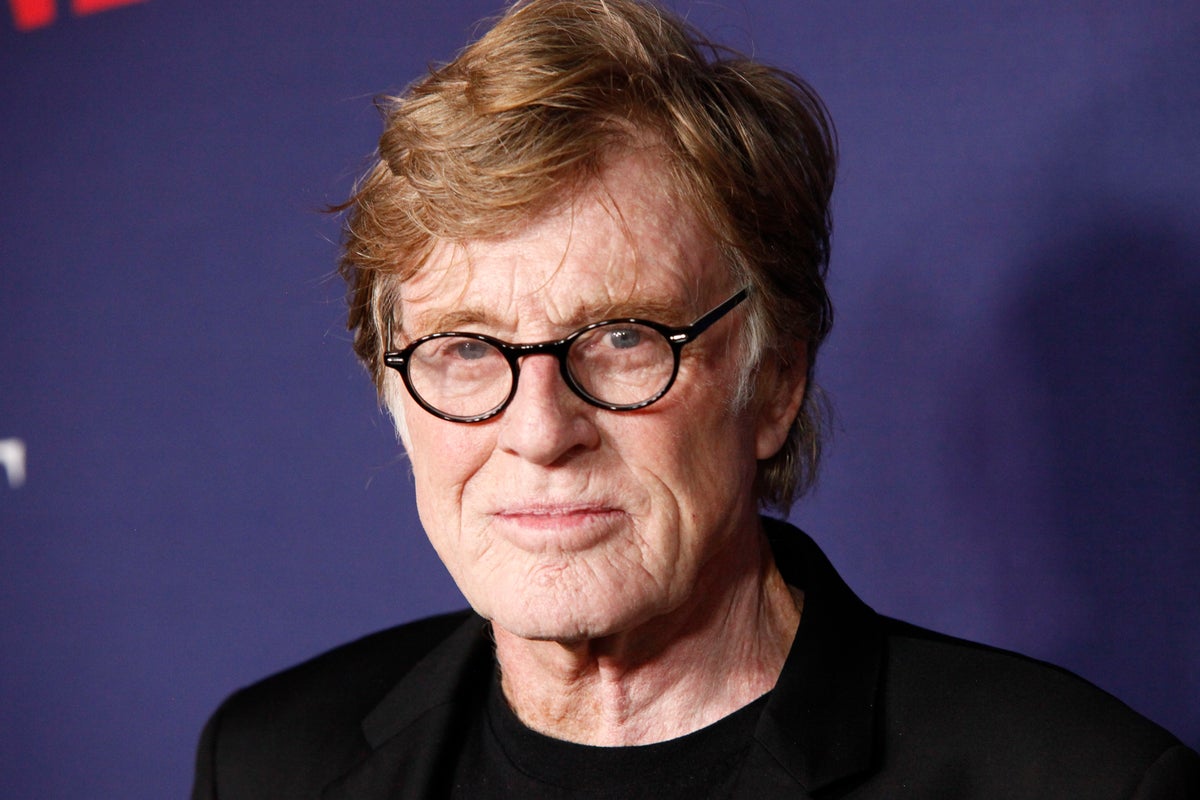
Robert Redford, the Hollywood golden boy who became an Oscar-winning director, liberal activist and godfather for independent cinema under the name of one of his best-loved characters, died Tuesday at 89.
Redford died “at his home at Sundance in the mountains of Utah — the place he loved, surrounded by those he loved,” publicist Cindi Berger said in a statement. No cause of death was provided.
Redford was one of the biggest stars of the ’70s with such films as “The Candidate,” “All the President’s Men” and “The Way We Were,” capping that decade with the best director Oscar for 1980’s best picture winner, “Ordinary People.”
His wavy blond hair and boyish grin made him the most desired of leading men, but he worked hard to transcend his looks — whether through his political advocacy, his willingness to take on unglamorous roles or his dedication to providing a platform for low-budget movies.
His roles ranged from Washington Post journalist Bob Woodward to a double agent in the Marvel Cinematic Universe, and his co-stars included Jane Fonda, Meryl Streep and Tom Cruise. But his most famous screen partner was his old friend Paul Newman, their films a variation of their warm, teasing off-screen relationship. Redford played the wily outlaw opposite Newman in 1969’s “Butch Cassidy and the Sundance Kid,” a box-office smash from which Redford’s Sundance Institute and festival got its name.
He also teamed with Newman on 1973’s best picture Oscar winner, “The Sting,” which earned Redford a best actor nomination as a young con artist in 1930s Chicago.
Film roles after the ’70s became more sporadic as Redford concentrated on directing and producing and his new role as patriarch of the independent-film movement.
He starred in 1985’s best picture champion “Out of Africa” and in 2013 received some of the best reviews of his career as a shipwrecked sailor in “All is Lost,” in which he was the film’s only performer. In 2018, he was praised again in what he called his farewell movie, “The Old Man and the Gun.”
“I figure now as I’m getting into my 80s, it’s maybe time to move toward retirement and spend more time with my wife and family,” he told The Associated Press at the time.
Redford had watched Hollywood grow more cautious and controlling during the 1970s and wanted to recapture the creative spirit of the early part of the decade. Sundance was created to nurture new talent away from the pressures of Hollywood. The institute and festival based in Park City, Utah, became a place of discovery for such previously unknown filmmakers as Quentin Tarantino, Steven Soderbergh, Paul Thomas Anderson and Darren Aronofsky.
“For me, the word to be underscored is ‘independence,’” Redford told the AP in 2018. “I’ve always believed in that word. That’s what led to me eventually wanting to create a category that supported independent artists who weren’t given a chance to be heard.”
By 2025, the festival had become so prominent that organizers approved relocating to Boulder, Colorado, starting in 2027.
Redford’s affinity for the outdoors was well captured in “A River Runs Through It” and other films and through his decades of advocacy for the environment, inspired in part by witnessing the transformation of Los Angeles into a city of smog and freeways. His activities ranged from lobbying for the Clean Air Act and Clean Water Act to serving on the board of the Natural Resources Defense Council.
Born in Aug. 18, 1936 in Santa Monica, California, Redford attended college on a baseball scholarship and would later star as a middle-aged slugger in 1984’s “The Natural,” the adaptation of Bernard Malamud’s novel. He had an early interest in drawing and painting and studied at the American Academy of Dramatic Arts. He debuted on Broadway in the late 1950s before moving into television on such shows as “The Twilight Zone,” “Alfred Hitchcock Presents” and “The Untouchables.”
Redford was married twice, most recently to Sibylle Szaggars. He had four children, two of whom have died — Scott Anthony, who died in infancy, in 1959; and activist and fimmaker James Redford, who died in 2020.
Redford also appeared in several political narratives. He satirized campaigning as an idealist running for U.S. senator in “The Candidate” and uttered one of the more memorable closing lines, “What do we do now?” after his character manages to win. He starred as Woodward to Dustin Hoffman’s Carl Bernstein in 1976’s “All the President’s Men,” the story of the Washington Post reporters whose Watergate investigation helped bring down President Richard Nixon.
His biggest filmmaking triumph came with his directing debut on “Ordinary People,” which beat Martin Scorsese’s classic “Raging Bull” at the Oscars.
Redford’s other directing efforts included “The Horse Whisperer,” “The Milagro Beanfield War” and 1994’s “Quiz Show,” the last of which also earned best picture and director Oscar nominations.
“The idea of the outlaw has always been very appealing to me. If you look at some of the films, it’s usually having to do with the outlaw sensibility, which I think has probably been my sensibility. I think I was just born with it,” Redford said in 2018. “From the time I was just a kid, I was always trying to break free of the bounds that I was stuck with, and always wanted to go outside.”
___
Associated Press journalists Hillel Italie, Jake Coyle and Mallika Sen contributed to this report. Bob Thomas, a longtime Associated Press journalist who died in 2014, was the principal writer of this obituary.
